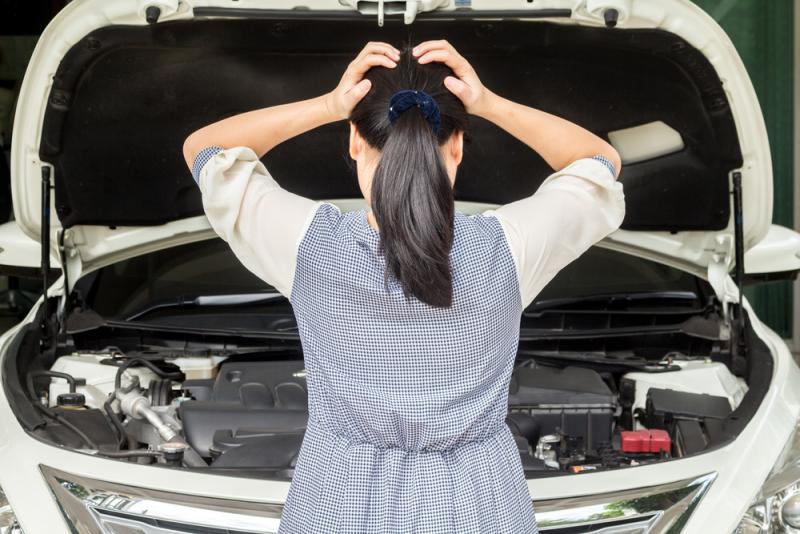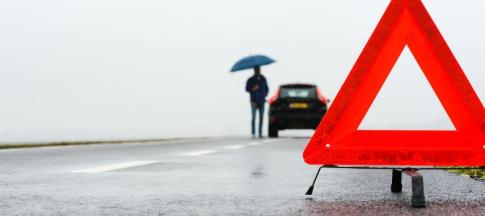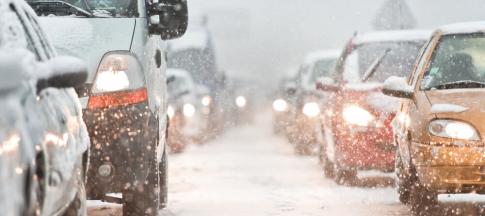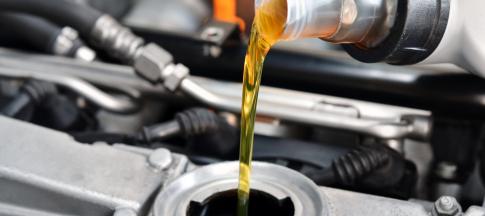
What items do you need to keep in your car or van so you're safe in the event of a breakdown? From a map to jump leads to breakdown cover, we've listed the things that should have a home in your boot or glove box.
If your car won’t start, of if you’re ever broken down at the side of the road, then you’ll know that packing a few essential items before your journey can make the whole process a lot easier – and help take the stress out of the situation too.
Emergency items checklist
A high visibility jacket
Particularly important if you break down in an area of low visibility, a high vis jacket can alert passing road users of your presence.
Unlike in some European countries, there's no legal requirement to store a jacket in a car or van in Britain but it's a useful item to have stowed away in case of emergencies.
Sturdy shoes
A spare pair of shoes are useful to keep, especially in the winter or in periods of bad weather.
Warm, durable footwear such as boots are recommended so you’re able to walk to find help if you get stuck in a rural area, or if you’re cold while waiting for the recovery vehicle to arrive.
Coat or blanket
It is always safer to leave your vehicle if you break down - especially if you are on a motorway or dual carriageway.
Therefore, it can be useful to have a coat or blanket to hand so you can be protected from the wind and cold.
A blanket can also be a handy item to have if you have children or have a spontaneous picnic in the summer months.
Dry food and water
Non-perishable food items can come in useful in case of emergencies, long traffic queues or long-distance journeys. These could include cereal bars or nuts.
Bottles of water are great in the event that you get stranded but can also be used to top up your radiator.
Torch
A torch can be useful in so many situations.
Don’t rely on your mobile phone flashlight, and instead make sure you’ve got a torch and spare batteries. You never know when they come in handy!
Hazard triangle
Many new vehicles come with a hazard triangle as standard, but if yours doesn’t, they can be picked up online at an affordable price.
While you shouldn’t use them on motorways, they can be particularly useful on urban or rural roads to alert oncoming traffic that you've broken down.
The Highway Code states that you should place the triangle no less than 45 metres behind your vehicle, and on the same side of the road.
For more advice on what to do if your car breaks down, check out our guide.
Money
Whether it be for toll charges or a coffee break, remembering to keep a few coins in your car or van can get you out of tricky situations.
However, don’t leave too much money there overnight and make sure it’s not visible to passers-by, as you could then be a target of a break-in or theft.
First aid kit
A basic first-aid kit is always useful to have stored away in case of emergency.
Make sure to include headache tablets too in the event that your passengers are too noisy!
Portable phone charger
This can be a lifesaver if you’re relying on Google Maps to give your directions or your passenger needs to make an urgent call.
While you can buy power-packs, you can also purchase phone chargers which connect directly to your cigarette lighter port.
However, remember that it is illegal to use a hand-held phone when driving, and you could get six penalty points and a £200 fine.
Ice scraper
Ice scrapers are extremely cheap, and can a great tool to keep in your boot if your windscreen gets frozen over.
Map
You can’t always rely on technology, so keeping a good old-fashioned map in your car or van can give you peace of mind when setting off on a long road trip.
Make sure it’s up to date though, as the UK’s roads have developed since 1999!
A spare tyre
A spare tyre previously came as standard with all new vehicles, but this is increasingly becoming less common.
When searching for a new car or van, research whether it comes with a spare tyre, as this can be useful should you find yourself in a tricky situation at the roadside.
Saving you time and money, a spare tyre is a handy item to have - now you’ll just need to make sure you can change it...
Jump leads
Jump-starting a car or van can be a quicker alternative to calling in a professional if your battery dies unexpectedly.
Jump leads can be bought online or from all good motoring retailers.
Besides jump leads, all you’ll need to jump-start your vehicle is another one with a full battery and approximately the same engine size (although not a hybrid or electric, as this can cause damage).
It's important to add here that you shouldn't do this if you're not completely confident in what you're doing. If in doubt, it's best to call a professional.
Manual
Despite the majority of car and van manuals having an online version, owning a physical copy can make identifying problems easier when you’re on a long journey.
Your manual will help you to identify the cause of warning lights as well as specific information like tyre pressure.
Breakdown cover
It’s essential that you are covered for every eventuality when you set off on a long journey.
With Admiral Breakdown Cover, you can choose from three different levels, which all include benefits such as named drivers cover, message services, caravan and trailer cover and roadside assistance.


